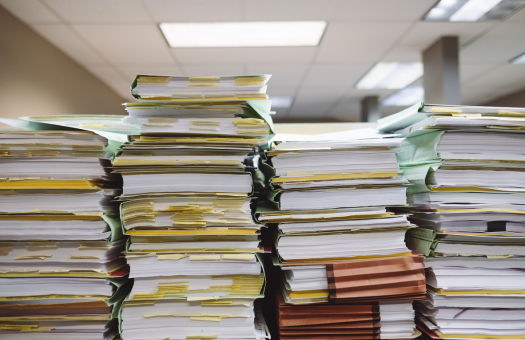Your Guide to Shredding Financial Documents
October 30, 2023 Author: Tess Downing, MBA, CFP®, Complete View Financial

When making important financial decisions, signing documents and checks, and looking at paperwork, consider what happens after signing the contract. These decisions are impacting your life in more ways than one. With this being said, it’s essential to develop intelligent and responsible tactics to eliminate these financial documents when they are no longer needed. These documents have sensitive information in them, and disposing of them in the wrong way could put you at risk.
Now, we aren’t talking about all financial documents. You would want to throw away the receipt if you spent $1.50 on a soda at a convenience store. At one point, though, people took the time to record every transaction and ensure they stayed on track with their spending. So, if we aren’t talking about all financial documents, which ones are we talking about?
What Documents Should I Save?
While you don’t need to keep the transactions mentioned in the example above, there are documents you must save for tax purposes. Anything you plan to deduct from your taxes should be kept for three years. This includes both personal and business items.
- Tax Documents: The IRS has up to six years to audit your past tax return. With this being said, it would be wise to hold on to these documents for at least seven years. This includes tax returns and any documents that have information about your deductions.
- Property Records: After selling your property, keep any documents outlining the purchase, development, and sale for six years after your parcel has been sold.
- Credit Card Statements and Bills: Ensure your statements are correct and any bills have been paid. The save time is less with these documents; if everything is accurate, you can discard these documents after one month.
- Paycheck Stubs: Generally, you should hold onto all paystubs until the end of the tax year.
- Trading Records and Brokerage Statements: Since your financial activities affect your tax obligations, hold onto these documents for seven years, aka the audit window.
How to Store Documents
There are many different ways you can store your records. If you’re keeping them at home, getting them safe is a good idea. You and at least one other person know the combination. Ensure this is a person you trust, such as a spouse or family member. For added security, use a password you’ve never used for anything else, which can eliminate hackers from figuring out your online passwords and the password to your safe.
If you don’t want to keep your records at home, you can keep them in a safety deposit box at your bank or credit union; that is the most secure option, even when someone robs your bank. Don’t forget to give at least one other person a key for emergency access.
How to Dispose of Documents
Key tip #1 is to make sure to use a shredder. Going through the trash is one of the most common and easiest ways for people to get a hold of financial information. This opens your accounts up to fraud and false transactions. If you don’t own a shredder, many businesses, including your bank, can dispose of these documents for you.
Conclusion
As long as your records are used in financial decisions, you should be as careful as possible when disposing of them. By knowing what to keep, for how long, how to store them, and how to dispose of them, you can protect your financial information from being leaked.
For more information and help to keep your data secure, contact Complete View Financial today!
